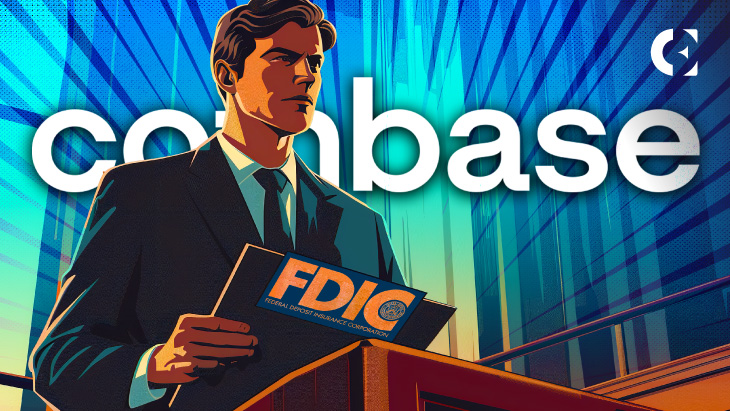- Coinbase’s lawsuit against FDIC’s alleged crypto crackdown has reached a significant milestone.
- The court has ordered FDIC to provide a “Vaughn Index,” which will expose the truth of Chokepoint 2.0.
- MetaLawMan questions Congress’ silence on the government agencies’ suppression of the crypto industry.
Coinbase’s legal battle against the FDIC’s alleged crackdown on crypto has had much progress. As noted by Coinbase’s Chief Legal Officer, Paul Grewal, the court has directed the FDIC to provide a “Vaughn Index,” a detailed record of documents the agency is keeping from the public.
Coinbase Challenges Government’s Crypto Stance
On June 27, 2024, Coinbase filed lawsuits against the Securities and Exchange Commission (SEC) and FDIC for their clampdown against the crypto industry. The lawsuits allege that the federal agencies are trying to isolate crypto platforms from the broader financial sector. Coinbase requested the agencies to submit detailed records and evidence of their approach to the crypto industry and its regulation.
Grewal, through his earlier statements, asserted that the government is stifling the crypto industry in various ways. He pointed out that while the SEC hasn’t provided any regulatory clarity to the crypto space, the FDIC has pressured banks and other financial institutions to sever ties with crypto platforms. Referred to by some as “Operation Chokepoint 2.0,” Grewal stated that the new development in the lawsuit would reveal the truth of Chokepoint 2.0.
Crypto enthusiast MetaLawMan, who previously referred to Grewal an “intrepid detective,” welcomed the update as “great” progress. In his earlier tweet, MetaLawMan praised Coinbase and Grewal’s investigation into the government’s crypto crackdown, questioning Congress’ silence.
Read also: Ex-Coinbase Execs Launch TrueX Exchange, Backed by PayPal’s PYUSD
In his recent X post, he reiterated his displeasure with the government agencies’ unfair treatment of the crypto industry and Congress’ apathetic approach. He highlighted crypto companies’ eagerness to clarify the industry’s regulatory norms and their significant role in shaping the industry’s future. He wrote, “Why does a public company have to do Congress’s oversight function?
Disclaimer: The information presented in this article is for informational and educational purposes only. The article does not constitute financial advice or advice of any kind. Coin Edition is not responsible for any losses incurred as a result of the utilization of content, products, or services mentioned. Readers are advised to exercise caution before taking any action related to the company.







